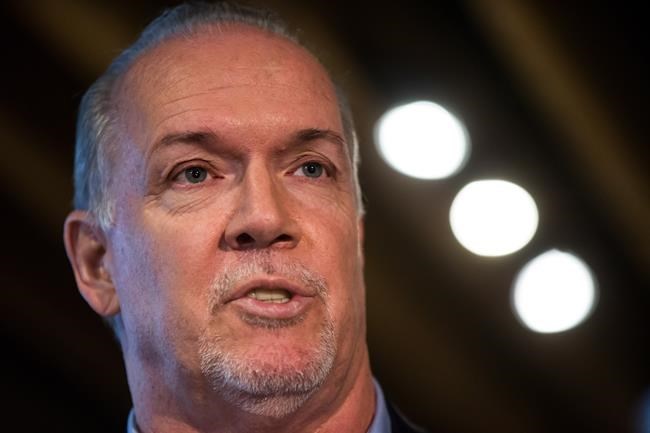Premier John Horgan says he opposes twinning of the Kinder Morgan Trans Mountain pipeline. The question is, how firm is that opposition? His party also promised to halt B.C. Hydro’s Site C dam prior to last year’s provincial election. When the crunch came, Horgan allowed the project to proceed.
Arguably, that was an easier decision than halting the pipeline. Billions had already been spent, with more needed for remediation if the project were killed.
And Horgan had to be concerned about jogging memories of the fast-ferries fiasco, when the NDP were last in office. On that occasion, hundreds of millions were wasted on a scheme that also failed.
Opposing the pipeline, however, is more risky still. Yes, it’s what the party wants. But Prime Minister Justin Trudeau has given Kinder Morgan the green light.
Constitutionally, the province is on thin ice attempting to impede the flow of interprovincial trade.
And a war with Alberta’s NDP Premier Rachel Notley, already begun, is guaranteed to heat up if the pipeline is halted. Notley faces an election next year.
If she fights B.C. and wins, her government might survive. But if she loses, she might well be finished, and Horgan would share the blame.
The real point of the spear is closer to home. B.C. Green Party Leader Andrew Weaver has said he cannot live with anything but full-scale opposition to the pipeline. He has hinted his alliance with Horgan’s minority administration hangs on this issue.
If Weaver detects a weakening of will on Horgan’s part, he could bring down the government and force an election.
And arguably, we are seeing some signs of wavering. Horgan said recently he would appoint an expert panel to examine the risks of bringing more heavy oil to the coast. He used a similar process when he asked the B.C. Utilities Commission to review the Site C dam before changing his position.
It’s expected the panel might take two years or more. That should keep the alliance with Weaver in place until the run-up to the 2021 election.
But is this Horgan’s best choice? Yes, if he is truly committed to stopping the pipeline.
However, if November’s referendum on electoral reform passes, the Greens are almost assured a much stronger position. Weaver is already dug in on the pipeline with a handful of seats; he will be immovable if he wins more seats.
If Horgan is open to some form of compromise — tougher safety standards, say, in exchange for letting the project proceed — it might be better to act now, rather than face an influx of Green reinforcements down the road.
Can he afford to risk a falling out with Weaver at this point? That question can be asked the other way round. Can Weaver risk a falling out before November’s referendum?
And there is another point to consider. The business community is watching closely.
If they see signs of a hostile environment, they might invest their money elsewhere. Horgan has shown himself acutely aware of this risk — it’s partly why he let the Site C dam proceed.
Moreover, the provincial budget, due later this month, has to be a concern. Medical Services Plan premiums have already been cut in half. That should reduce revenues by a billion dollars or more. And there will be no dividend from ICBC.
Anything that slows the provincial economy, such as killing the pipeline, might push the budget into a deficit position, something the party would regret.
Only Horgan knows his real intentions. But going down in history as the premier who split the country’s NDP movement must give him food for thought.



